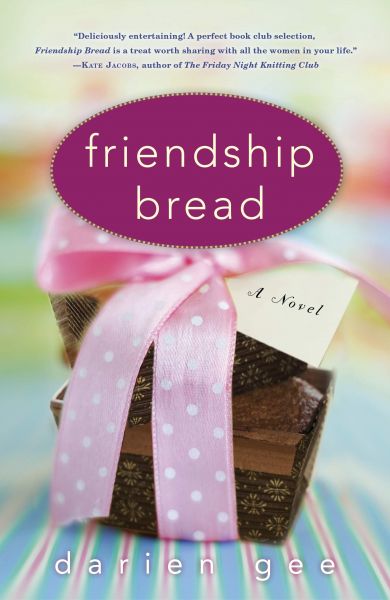 Synopsis:
Synopsis:
Avalon, Illinois, about ninety minutes from Chicago, is a quintessential small American town. Julia Everts grew up there, but for the past five years, she has barely left her house and shunned most of her neighbors and long-time friends. When Julia’s ten-year-old son, Josh, died, in many ways, Julia stopped living, too. She goes through the motions, for the sake of her five-year-old daughter, Gracie, with whom she was pregnant when she lost her son, but Julia is mired in sorrow, regret, and guilt. Her husband, Mark, still loves her deeply, but cannot figure out how to regain the intimacy they once shared. It seems that the only thing binding them together is their adorable little Gracie.
Hannah de Brisay has only recently taken up residence in Avalon, with her husband, Philippe. Both are renowned classical musicians, she a cellist, he a violinist, who have played with the world’s finest orchestras. An injury forced Hannah off the concert circuit, and now she finds herself alone in Avalon much of the time as Philippe returns to their Chicago apartment or travels to the site of his next performance. This is not the life Hannah envisioned when she agreed to move to Avalon.
Madeline’s Tea Salon and Antiques is a new business in Avalon, owned by Madeline Davis. At seventy-four years of age, Madeline has converted the old bed and breakfast inn and hopes that her business soon begins thriving. She is a widow with an adult stepson from whom she has been estranged for many years.
And then there is Edie, who is chasing that one big story that will be syndicated and appear in newspapers across the country, propelling her career as a journalist into the stratosphere. As a freelance writer for Avalon’s Gazette, Edie is growing tired of the stories about small-town life that are her “meat and potatoes.” Edie has come to live in Avalon with her boyfriend, Richard, the town’s new general practitioner. Edie doesn’t feel as though she has anything in common with the women in Avalon, but is trying to be friendly, starting with Livvy, her coworker in advertising sales. Livvy and her husband, Tom, a pharmaceutical representative who has not been making his sales quotas due to the economy, want to start a family, even though they are deeply in debt. Livvy wants a child of her own, but in light of her past, worries about whether or not she will be a good mother. She misses her sister, Julia, who has refused to see or speak with her, and returned unopened the letters Livvy has sent her since Josh’s death.
 One afternoon, Julia and Gracie return home to find a plate of Amish Friendship Bread along with a bag of starter on their doorstep. The gift is accompanied only a yellow sticky note bearing the words, “I hope you enjoy it,” and printed instructions, directing them to feed the starter over a ten-day period, then bake two loaves and share the remaining starter with three other people. They have no idea who left the bread and started for them. Julia is reluctant, but after tasting the sweet, delicious bread, Gracie insists that they follow the instructions and bake some of the bread in ten days.
One afternoon, Julia and Gracie return home to find a plate of Amish Friendship Bread along with a bag of starter on their doorstep. The gift is accompanied only a yellow sticky note bearing the words, “I hope you enjoy it,” and printed instructions, directing them to feed the starter over a ten-day period, then bake two loaves and share the remaining starter with three other people. They have no idea who left the bread and started for them. Julia is reluctant, but after tasting the sweet, delicious bread, Gracie insists that they follow the instructions and bake some of the bread in ten days.
Soon Gracie is sharing starter with her friends at school and Amish Friendship Bread is making its way into the homes of Avalonians. Julia stumbles into Madeline’s Tea Salon one morning, having no idea that one little bag of starter and a fateful meeting of three women, each of whom is, in her own way, lost, will change all of their lives, as well as the lives of most of the residents of the little town of Avalon.
Review:

Ironically, Amish Friendship Bread also changed the life of author Darien Gee. Her own daughter brought home a sample and a bag of starter from school one day. “When I tried it, I was hooked,” Gee relates. “As I was finishing off the last piece, my protagonist appeared in my mind — a woman who was filled with sadness, who was going through the day to day motions of life even though she hadn’t felt alive in years. I started writing Friendship Bread that night.”
That protagonist was, of course, Julia Everts, the woman who has carried that profound sadness known only to someone who has lost a child with her for five years. Many marriages do not survive the death of a child, a fact that Mark Everts is keenly aware of. Mark is as tenacious as Julia is sad — he has been patient, understanding, and, perhaps, enabling Julia through her grief, determined to keep his family together. But as the story begins, Mark is growing restless, anxious to move on with living life to its fullness — never forgetting Josh, of course — and frustrated by the fact that he no longer has a real marriage. A successful architect, there is temptation in Mark’s workplace, but he is an endearing, if almost too perfect character: He is a man who only has eyes for his beautiful, if sorrow-filled wife, for better or worse.
Hannah has been told what to do, and when and how to do it, her entire life. A child prodigy, she began playing the cello when just five years old, and was pushed to greatness by her well-meaning, but strict Asian parents. When she met Philippe, she was used to deferring to others’ directions, so she continued doing so with him. Hannah, at the age of 28, has never really lived life on her own terms, making her own choices. Philippe’s duplicitous departure from their marriage is forcing her to learn how to stand on her own. Friendships forged over tea and Amish Friendship Bread help Hannah realize that there is more to life than music and she is a strong woman, capable of living independently — with the ongoing love and support of those newfound friends, of course.
The message of Friendship Bread is that “we’re all connected to one another, in ways both seen and unseen. That we’re always touching one another’s lives, and that’s what makes it so rich and wonderful.”~ Author Darien Gee
Madeline has lived a full life prior to coming to Avalon, but has done so alone for the past twenty years since her husband, Steven, died. She never had children of her own and the great regret of her life is the way her relationship with her stepson, Ben, deteriorated to the point that she lost touch with him years ago. She is at a point in her life where she wants to live quietly, productively, but at peace with the paths she has walked and the people she has interacted with. She has written a letter to Ben in which she pours out her feelings, hoping that they can mend their relationship. But she just hasn’t been able to bring herself to mail that letter.
And so, as the three women come together in Madeline’s Tea Salon — theirs is a chance meeting on a quiet morning when Julia and Hannah are Madeline’s only customers — friendships are tenuously forged and with each other’s encouragement, their lives begin to change for the better. Along with Livvy and Edie, the women’s characters are fully developed and empathetic. Their emotions are so palpable and authentic that readers will swear they have met them before.
Interwoven with their stories are the tales of Edie and Livvy, as well as short vignettes of various Avalonians who receive bags of starter. Some of those short glimpses into their lives are hilarious, as the starter seems to multiply faster than rabbits and take over the freezers and ovens of every resident of Avanlon. Others are poignant and sweet. Each demonstrates that Amish Friendship Bread has infiltrated Avalon and impacted its citizenry in an unprecedented fashion. In some cases, old grudges are set aside over a bag of starter and a shared recipe or two. In other instances, new grudges are formed as residents attempt to pawn off their extra starter on naive neighbors and friends. Remarkably, each story features characters who are as interesting as Gee’s lead players and could easily play a larger supporting role in the story.
Gee’s pacing is perfect. The story ambles along at the pace of life in a town such as Avalon, slowly revealing the ways in which the characters’ lives are intertwined and the reasons why their relationships with their loved ones strained. Into each life comes at least one bag of starter and an invitation to bake Amish Friendship Bread. By the book’s end, the shelves of the town’s grocery stores are devoid of flour, sugar, and the other ingredients necessary to bake the bread, and it seems that every resident of Avalon is baking some variation of the bread, all for a good cause in the name of charity, friendship, and service to one’s neighbors in their time of need.
Friendship Bread is a charming, “feel-good” story about a little town that could very well be your home and folks who could easily be your own next-door neighbors. Gee even includes the recipe for making your own starter, as well as a number of varieties of the bread — just in case you want to see if you can replicate the Avanlonian effect in your own community with a few slices, a bag of starter, and a note saying, “I hope you enjoy it.”



4 Comments
I have been wanting to read this book since I heard about it. Your review gave me another reason to read it. Thanks!
“Nay” from http://www.covertocoverandbetween.blogspot.com
I think it sounds like a lovely book. I’ve enjoyed the author’s other novels (written as Mia King) so this is on my list. Nice review!
Thanks for the great review of Darien’s book. I’m glad you enjoyed it.
I love to read a feel good book and love Friendship bread.